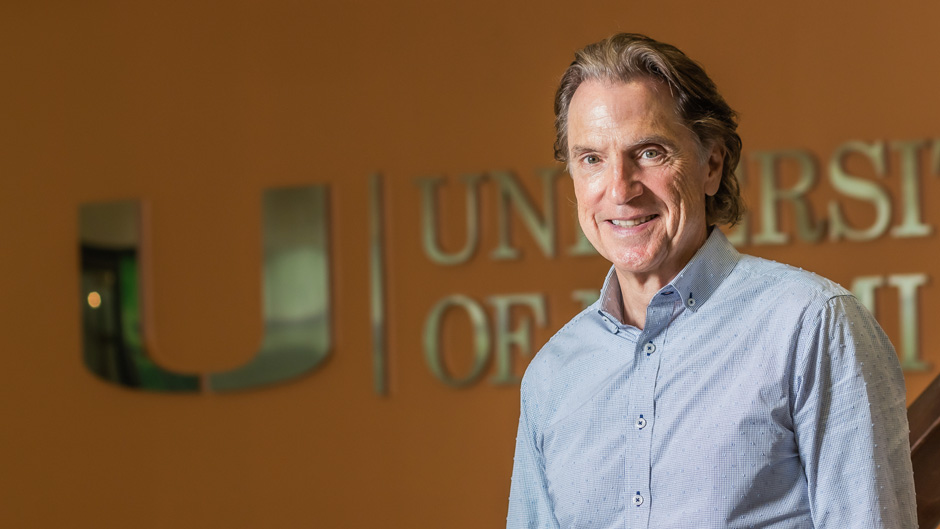University of Miami to establish The George P. Hanley Democracy Center
Barbara Gutierrez, 06-06-2022

As public trust in democratic governments shows signs of erosion, the University of Miami will establish a nonpartisan democracy center designed to research and disseminate the practice of the democratic process.
The George P. Hanley Democracy Center—which will launch in the fall and be housed in the College of Arts and Sciences—is being established through a generous commitment from George Hanley, a financier, entrepreneur, and philanthropist who has extensive experience in founding and building successful companies in the financial and commercial real estate industries. Based in Miami, Hanley is involved in commercial real estate locally and nationally, including in Nashville, Tennessee, and Chicago, Illinois.
The gift, which is part of the University’s fundraising campaign—Ever Brighter: The Campaign for Our Next Century—will also create The George P. Hanley Endowed Chair in Democracy, to be awarded to a tenured professor with expertise in the field.
Hanley, who has a history of endowing educational institutions and believes in “nourishing, mentoring, and investing” in young people, said that it is the right time to establish a democracy center.
“People need to have civil discourse,” he shared. “I find that when I have civil discourse with people, we are much closer in views than the cable news shows would have us believe. This is a center to look at different ways of thinking and to bring people together. Because at the end of the day, we are all Americans,” he added.
“This is a very important time to open up this center,” said Gregory Koger, chair and professor of political science, noting the challenges to democracy both in the United States and globally.
According to Koger, the center’s mission is to study the practice of democratic politics and share knowledge about politics with the public, offering citizens, scholars, and public officials the information they need to make informed decisions about the structure and practice of elections and governing.
“The University of Miami is the ideal academic venue for the democracy center,” said Leonidas Bachas, dean of the College of Arts and Sciences. “Florida has a reputation as an electoral battleground, a proverbial swing state that often draws national attention. Our proximity to Latin America also places us in an ideal spot to study democracy in the Americas and beyond.”
Bachas indicated that the University’s “professors in political science and across all disciplines will provide expert analysis and context to all of the center’s programming and ensuing research so that the general public and public officials can gain a greater understanding of what democratic governance entails.”
Jeffrey Duerk, executive vice president for academic affairs and provost, pointed out that many students “are participating in the democratic process for the first time, or, for some of our international students, seeing it in action for the first time. The Hanley Democracy Center and the Hanley endowed chair will support the kind of scholarship and dialogue that helps our entire campus community to better understand our rights and responsibilities and the impact of our choices as engaged citizens.”
Koger noted that there are clear signs that democracy has been weakened, both nationally and internationally. In the United States, those signs include an increasingly polarized electorate and a diminishing trust in institutions, including the press and political institutions, he said. Globally there are also indications of governments turning toward authoritarianism, he added.
“Our role will be to understand why some governments are turning to authoritarianism and how it is happening,” Koger said. “And [we need to] try to shore up the institutions and practices, so that it does not continue.”
To fulfill its mission, the center will offer research grants to faculty members who study democratic policies, conduct public programming, and host discussion panels, as well as provide support to students through internships.
In its programming, the center will explore issues of redistricting in Florida as well as in other states, how Congress could be more effective, and how campaigns are financed and the political implications of that financing, said Koger.
Although there are other university democracy centers focused on democratic governance and elections in Florida, according to Koger, The George P. Hanley Democracy Center will become the preeminent institution of its kind in South Florida.